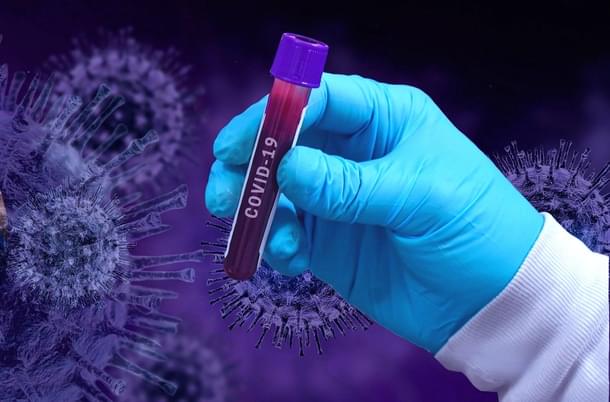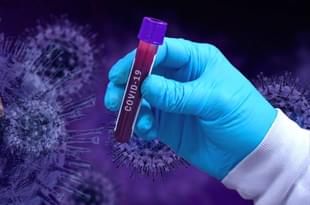News Brief
CCMB Chief Says No Unique Andhra Strain Which Is 15 Times More Virulent — Here’s All You Need To Know About COVID-19 Strains
Swarajya Staff
May 05, 2021, 07:15 PM | Updated 07:15 PM IST
Save & read from anywhere!
Bookmark stories for easy access on any device or the Swarajya app.


The Director of Hyderabad-based Centre for Cellular and Molecular Biology (CCMB), Rakesh Mishra, today debunked reports of a unique or a novel “Andhra” strain, The Print reports.
Mishra said that the prevalence of the variant called the ‘N440K strain’ in Andhra Pradesh is less than 5 per cent at the moment and is likely to disappear or be replaced soon by other existing variants, adding that there is no evidence that the N440K variant is deadly or more infectious than other COVID-19 variants.
One Virus, Different Strains
A strain or variant of a virus results from genetic mutations. When the virus replicates itself inside a host cell, there is a possibility of a mutation. These changes in the genetic material of the virus are random, hence, cannot be easily predicted.
Scientists give names to variants and mutations separately. One variant can have a combination of several different mutations.
The SARS-CoV-2 virus is evolving fast because of it has infected people around the world. High levels of circulation mean higher replication, and more replication means more chances of genetic mutations.
Some of these mutations can result in higher infectivity, transmissibility, disease severity etc. of the virus. Therefore, it is important to keep a track of the variants. The COVID-19 pandemic itself began with a genetic mutation that enabled the virus to jump from animal to human hosts.
According to WHO, in late January or early February 2020, A variant of SARS-CoV-2 with a D614G substitution in the gene encoding the spike protein emerged.
This variant had replaced the the initial SARS-CoV-2 strain identified in China and by June 2020 became the dominant form of the virus circulating globally.
While the strain does have increased infectivity and transmission, it does not cause more severe illness or alter the effectiveness of existing medication.
In August and September 2020, a SARS-CoV-2 variant referred to as the “Cluster 5” variant appeared in Denmark. It has a combination of mutations not previously observed. It does not appear to have spread widely.
In December 2020, two more variants came to light. One was the UK variant (B.1.1.7), another was the South Africa variant (B.1.351). In January 2021, experts spotted a new COVID-19 variant (P.1) in people from Brazil.
All the above variants have the N501Y mutation which is helps the virus spread more easily but there is no clear evidence of the new variant being associated with more severe disease or worse outcomes.
As per a BBC report, experts think the UK strain may be up to 70 per cent more transmissible or infectious - although research by Public Health England puts it between 30 and 50 per cent.
Both South Africa and Brazil variants have a key mutation, called E484K, that may help the virus evade the antibodies that the body uses to fight the infection.
Earlier this year, a double variant called as B.1.617 was for the first time detected in Maharashtra, India. It carries two mutations, E484Q and L452R. While both are separately found in many other coronavirus variants, they were observed together for the first time in India.
Together, the two mutations make the virus more infectious, and help it evade antibodies.
In late March, Ministry of Health in India said that apart from B.1.617, many other strains or variants of concern (VOCs) were found in 18 states in the country.
“Since INSACOG initiated its work, 771 variants of concerns (VOCs) have been detected in a total of 10787 positive samples shared by States/UTs. These include 736 samples positive for viruses of the UK (B.1.1.7) lineage. 34 samples were found positive for viruses of the South African (B.1.351) lineage. 1 sample was found positive for viruses of the Brazilian (P.1) lineage. The samples with these VOCs have been identified in 18 States of the country,” it said.
While anecdotal evidence suggests that the new variants could have caused increased spread and severity of the disease, there simply isn’t enough data currently to conclusively state the effect of the variations on transmissibility, infectivity, vaccines, diagnostic tests etc.
As per recent reports, studies show that Bharat Biotech’s COVID-19 vaccine ‘Covaxin’ demonstrates potential effectiveness against the Brazil, UK as well as the Indian variant.
While vaccines may be slightly less effective against certain new variants, they certainly prevent severe disease and death. Therefore, the long-term solution to deal with COVID-19 is for people to get vaccinated.
Meanwhile, everyone should maintain physical distancing, cleanliness and hygiene, as well as low stress-levels.





